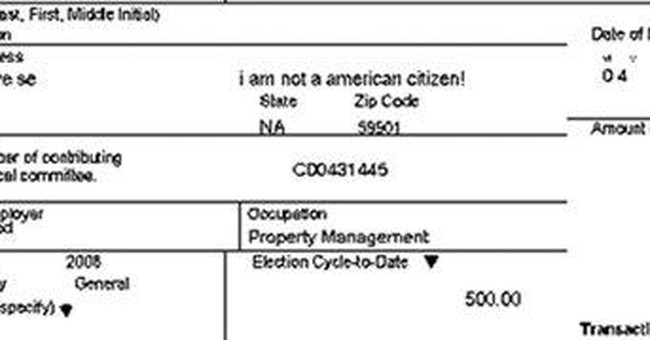
Like a horror movie’s teasing scenes, where campers laugh, oblivious to the monster in the shadows, this report is more about what would have happened without Citizens United. But the danger is easy to see and the monster’s not dead, as activists and liberal journalists fan a simmering movement to keep the issue alive, even passing a number of state initiatives and referenda, calling to amend and limit the First Amendment.
The initiatives are broadly popular among a public that believes fighting Citizens United is just common sense. But almost everything the public has heard and believes about the case is wrong. As the Left and its media amplifiers describe it: “The Supreme Court said corporations are people with constitutional rights. So, nothing can stop big business from spending billions of dollars to buy elections and control politics. And that’s wrong. People have constitutional rights; corporations don’t.”
Space doesn’t permit explaining all the factual and legal confusion in that simplistic blurb. But even the briefest thought should destroy the childishly appealing arguments. Of course companies enjoy constitutional protections. They should. The alternative sounds like Ted Kennedy’s deceitful hallucination about Robert Bork’s America: Police could kick down doors and seize materials without warrants or cause; Officials could deny permits or shut businesses down without reason or due process. Governments could confiscate equipment, property, or land without just compensation. Companies could be charged and convicted of crimes without juries or even trials.
That all sounds outrageous because we understand that Constitutional protections like the Fourth, Fifth, Sixth, and Seventh Amendments prohibit such abuses. Critics of Citizens United have to explain why they believe the First Amendment, unlike other Constitutional rights, applies only to people, not organizations.
If they’re handicapped by a law school education, they’ll probably have little difficulty constructing a serpentine argument weaving through the rights to do just that. But then, they’ll discover the serpent has looped around to sink its fangs in their rear. They just argued the entire media out from under First Amendment protections: media companies are corporations, too. By their flawed logic, George Will or Paul Krugman may have a right to free speech as individuals, but Congress is free to slap whatever restrictions or gags it wants on the output of ABC, the New York Times, and all those other big, bad corporations. That’s the nonsensical result of arguing speech rights can only be personal.
Important too is that Citizens United didn’t just affirm the rights of for-profit corporations, but of all corporate forms, all of whom were barred by law from political speech during elections. That includes nonprofits, labor unions, and advocacy organizations, from the Sierra Club to the National Rifle Association. Further, the case hasn’t unleashed the predicted torrent of election speech by for-profit corporations. Unlike interest groups, who speak for particular causes, big business generally seeks profits and market share. Corporations are quite image conscious and sensitive to things that drive off lots of customers.
In all, Citizens United provokes opposition and intensity out of all proportion to its real world impact, except for one consequence you won’t find in the talking points or bumper stickers: It denied the administration a weapon just as the Chicago goon squad--after the 2010 shellacking--was looking for every weapon it could find. The president himself was an early and furious detractor, famously breaching decorum to insult the ceremonially hostage Supreme Court at his State of the Union address.
In the harsh light of the IRS scandal, and news other agencies targeted conservatives, it’s impossible to doubt the administration saw an even more useful tool in FEC prosecutions aimed to silence inconvenient companies. The IRS had to wait like a web-bound spider for self-selected organizing groups to seek non-profit status. In contrast, enforcing a ban on political speech, however that term might be creatively construed, against corporate America, offered the FEC a wide and happy hunting ground. No need to wait for a rag tag bunch to present itself seeking your blessing. Instead, Obama enforcers in the mold of Lois Lerner could scan the landscape for scalps, or, for the occasional “crucifixion” as the loose-lipped EPA administrator was caught boasting.
Targeted prosecutions could have spread quite a pall and chill across business big and small as word spread: “Stay away from politics. Who needs the brain damage?”
In 2010 and 11, the political landscape was a hostile place for team Obama. Americans had just repudiated his entire case for governing and Congress was running scared. Shrewd minds like Axelrod and Jarrett looked for new and potent ways to bleed force from the massing movement. They found them. But Citizens United denied them a formidable switchblade indeed, and may have saved untold blood.


No comments:
Post a Comment